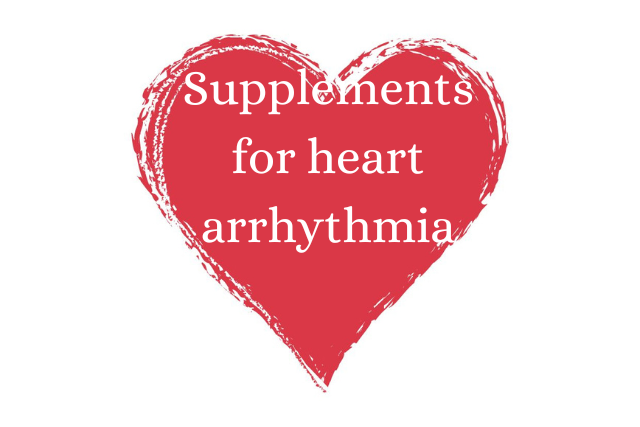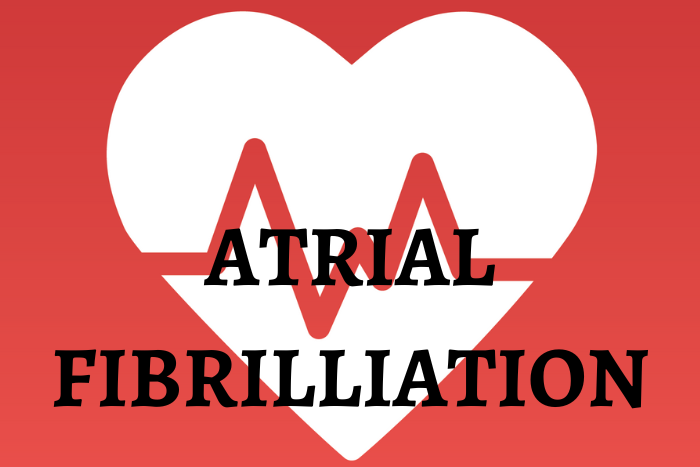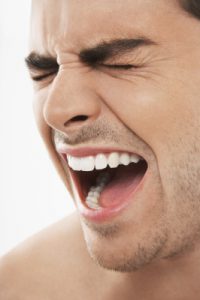
What are the best supplements for heart arrhythmia? Simple answer: nutrients, especially magnesium, that help your heart to do its job without strain or significant effort.
Please remember that it is not treatment. Nutrients are part of our body; when we lack them, the fun begins. What do I mean?
For example, magnesium participates in over 800 enzyme reactions. If you are deficient in magnesium, you will experience plenty of symptoms that will improve after taking the right magnesium supplement.
If you lack calcium, your bones will suffer. It is another example of calcium is when the body lacks vital minerals.
The word “supplement” means that you add to your body something that replenishes and fulfills the body’s needs.
How does heart arrhythmia happen?
Our body is electric. Our hearts have electrical activities too. I guess that you had at once in a lifetime EKG-electrocardiography. The device writes down impulses from your heart. Later on, doctors analyze what is going on with your heart.
Usually, when the heart does not lack nutrients such as potassium, sodium, magnesium, and calcium, the electrocardiogram does not show any arrhythmia-related problems. Unfortunately, the lack of these minerals creates cases such as atrial fibrillation.
Magnesium plays an essential role in preventing atrial fibrillation.
The heart starts to beat after electrical firing. It begins in the atria and goes down to the ventricles. A cluster of cells in the sinoatrial node can create electrical impulses. When magnesium is sufficient, the heart can relax after pumping blood.
With magnesium deficiency, the heart rate increases, and the heart rhythm becomes abnormal.
Do you know that heart has multiple backup pacemakers?
I learned about that from Dr.Carolyn Dean, the author of The Magnesium Miracle.
According to Dr.Carolyn Dean,
There are several areas along the conduction pathway where clusters of cells can start an electrical impulse from scratch
Dr.Carolyn Dean, TheMagnesium Miracle, 222
Let’s stop for a minute. Think about nature’s ability to protect the heart and brain from possible damage.
The brain is protected because of getting oxygen supply. The heart will be fired with the help of natural pacemakers. It seems that you do not need an artificial one.
Why does cardiac arrhythmia happen?
According to Dr.Carolyn Dean, cardiac arrhythmia starts when
- Heart irritated or damaged by the lack of oxygen
- Heart damaged by a hormonal imbalance
- Heart struggles from magnesium deficiency
- Heart aggravated by drugs and caffeine
Atrial fibrillation

Atrial fibrillation is cardiac arrhythmia too. This condition has become epidemic, and plenty of people do not feel comfortable with that. Can you imagine that in 2010, more than 5.2 million people had AFib?
Do you remember that over 70 percent of Americans are deficient in magnesium? These facts show that people could benefit from magnesium, which relaxes the heart and helps the body coordinate electrical impulses.
Why does atrial fibrillation happen?
The heart has four chambers. Atria are at the top, and ventricles are at the bottom.
Atrial fibrillation happens when the mineral balance is disturbed. Electrolytes such as potassium, calcium, magnesium, and sodium must be in the right balance.
Doctors check electrolyte panels, but most do not check magnesium levels(Dr. Carolyn Dean, The Magnesium Miracle, 221).
The heartbeat starts with the electrical firing. It begins in the atria. The right atrium has the sinoatrial node that consists of cluster cells. These are special. They create an electrical impulse that triggers adjacent cells to carry the current.
The electrical impulse goes down into the ventricles through the atrioventricular node.
When magnesium deficiency is, the heart can go into spasms. Besides, the heart rate increases, and abnormal heart rhythm occurs.
Causes and triggers of atrial fibrillation
In her book The Magnesium Miracle, Dr. Carolyn Dean mentions factors that cause atrial fibrillation.
These triggers are:
- Polluted air
- Consumption of alcohol
- Excess calcium
- Coronary artery disease
- Dehydration
- Dental infections
- Electrolyte imbalance
- Diabetes
- Hiatal hernia, gas, and bloating
- Glutamate and gluten sensitivity
- Abnormal heart valves
- High blood pressure
- Heart attack
- Heart physical changes
- Hypoglycemia
- Infections
- Holiday
- Inflammation
- Lung disease
- Drugs or medication
- Excessive physical activity
- Potassium deficiency
- Obesity
- The usage of artificial sweeteners
- Sleep apnea
- Sick sinus syndrome
- Stress
- Surgeries
- High sugar consumption
- Vitamin D
- Travel
- The holidays
- Yeast overgrowth
All these factors happen when the body lacks magnesium. The deficiency of magnesium is the root of plenty of problems. One of them is a cardiac arrhythmia in the atria or the ventricles.
Best supplements for heart arrhythmia
Magnesium plays a significant role in getting rid of heart arrhythmia. The best results happen when people use magnesium that goes straight to cells, absorbs at the cellular level, and does not have side effects like going into the bathroom.
Plenty of magnesium supplements do not absorb well. In this case, the body suffers from magnesium deficiency. Magnesium oxide absorbs at the 4 percent range. It means that you will spend more time in the place where kings walk, and you will not ripe full magnesium benefits.
Which magnesium supplement is the best on the market?
ReMag is the best magnesium supplement on the market. Why is it like that?
ReMag’s best traits are:
- 100% absorption at the cellular level
- No side effects
- Pure magnesium ions
- ReMag is twenty times more concentrated compared with angstrom minerals
You can read more about this miraculous product here.
Do you have an experience with magnesium supplements? Did you hear about Remag?


